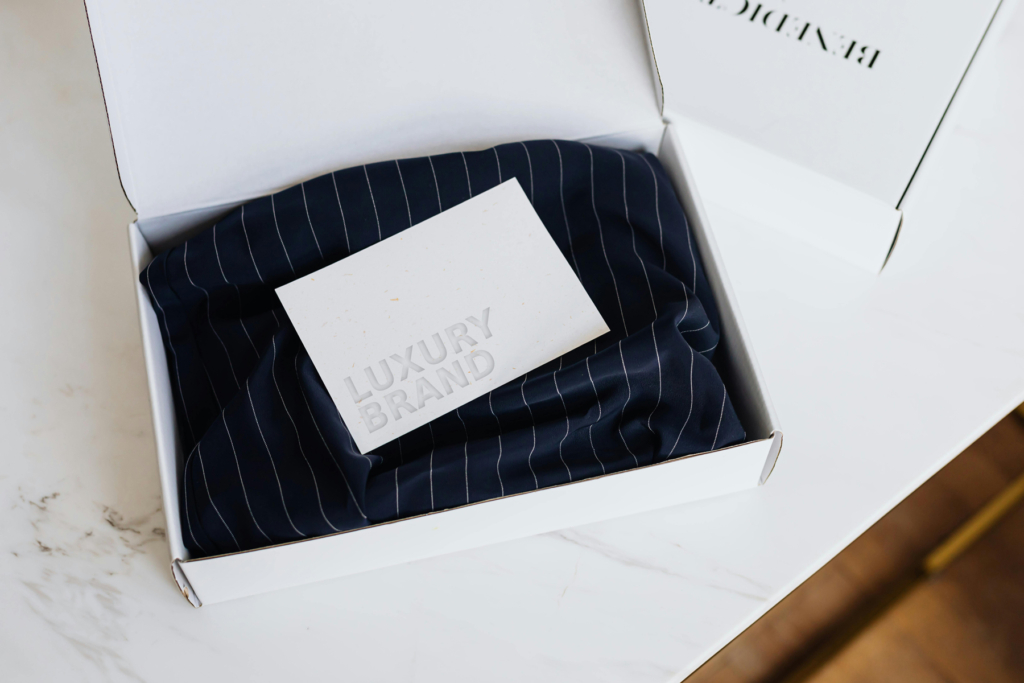Building a luxury brand involves more than just offering high-end products; it requires a strategic approach to create a unique and prestigious identity. This guide outlines key steps to establishing a luxury brand that resonates with discerning consumers and stands out in the competitive market.

1. Define Your Brand Identity
The first step in creating a luxury brand is defining a clear and compelling brand identity. This includes determining your brand’s mission, values, and vision. Consider what sets your brand apart from others and how you want it to be perceived. A luxury brand should evoke feelings of exclusivity, sophistication, and quality. It’s essential to create a distinct brand narrative that tells a story, appealing to the emotions and aspirations of your target audience.
2. High-Quality Products and Craftsmanship
Quality is the cornerstone of any luxury brand. Invest in superior materials, exceptional craftsmanship, and attention to detail. Whether you’re producing fashion, accessories, or services, the products should be impeccable and stand out in the market. Consistently delivering high-quality products builds trust and reinforces the brand’s reputation for excellence.

3. Target the Right Audience
Luxury brands typically cater to a niche market with a high disposable income. Understanding the demographics, preferences, and behaviours of this audience is crucial. Market research can help identify potential customers and tailor marketing strategies to appeal to their tastes and lifestyle. Luxury consumers often value exclusivity, so consider how your brand can offer unique experiences or products.
4. Create an Exclusive Brand Experience
Creating a sense of exclusivity is vital for luxury brands. This can be achieved through limited edition products, private events, personalised services, and an exceptional customer experience. The buying process itself should feel luxurious, whether it’s through a high-end physical store, a carefully designed website, or personalised customer service. The goal is to make every customer interaction feel special and unique.
5. Strategic Pricing
Pricing is a critical aspect of luxury branding. High prices often reflect the quality, exclusivity, and prestige of the brand. However, pricing should not be arbitrary; it should align with the perceived value of the product and the brand’s positioning. Transparent and consistent pricing helps maintain brand integrity and consumer trust.

6. Brand Communication and Marketing
Effective communication is key to building and maintaining a luxury brand. The brand’s messaging should be consistent across all channels, from advertising to social media. Luxury brands often benefit from a minimalist and sophisticated communication style. Marketing strategies should focus on storytelling, highlighting the brand’s heritage, craftsmanship, and values. Collaborations with influencers or celebrities, as well as editorial features in prestigious publications, can also enhance brand prestige.
7. Building and Protecting Brand Image
A luxury brand’s image is its most valuable asset. Protecting this image requires careful management of brand associations and public perceptions. It’s essential to monitor customer feedback, respond to issues promptly, and maintain a positive presence in the media. Ensuring that all brand extensions and partnerships align with the brand’s values and standards is also crucial in preserving the brand’s integrity.
8. Innovation and Adaptation
While luxury brands often rely on tradition and heritage, they must also innovate to stay relevant. This includes embracing new technologies, trends, and consumer preferences. However, innovation should not compromise the brand’s core values or quality standards. Finding a balance between tradition and innovation can help the brand evolve while maintaining its luxury status.
Conclusion
Creating a luxury brand requires a strategic approach that encompasses high-quality products, a distinct brand identity, and a deep understanding of the target market. By focusing on exclusivity, exceptional customer experiences, and consistent brand communication, luxury brands can build a prestigious and enduring presence in the market.